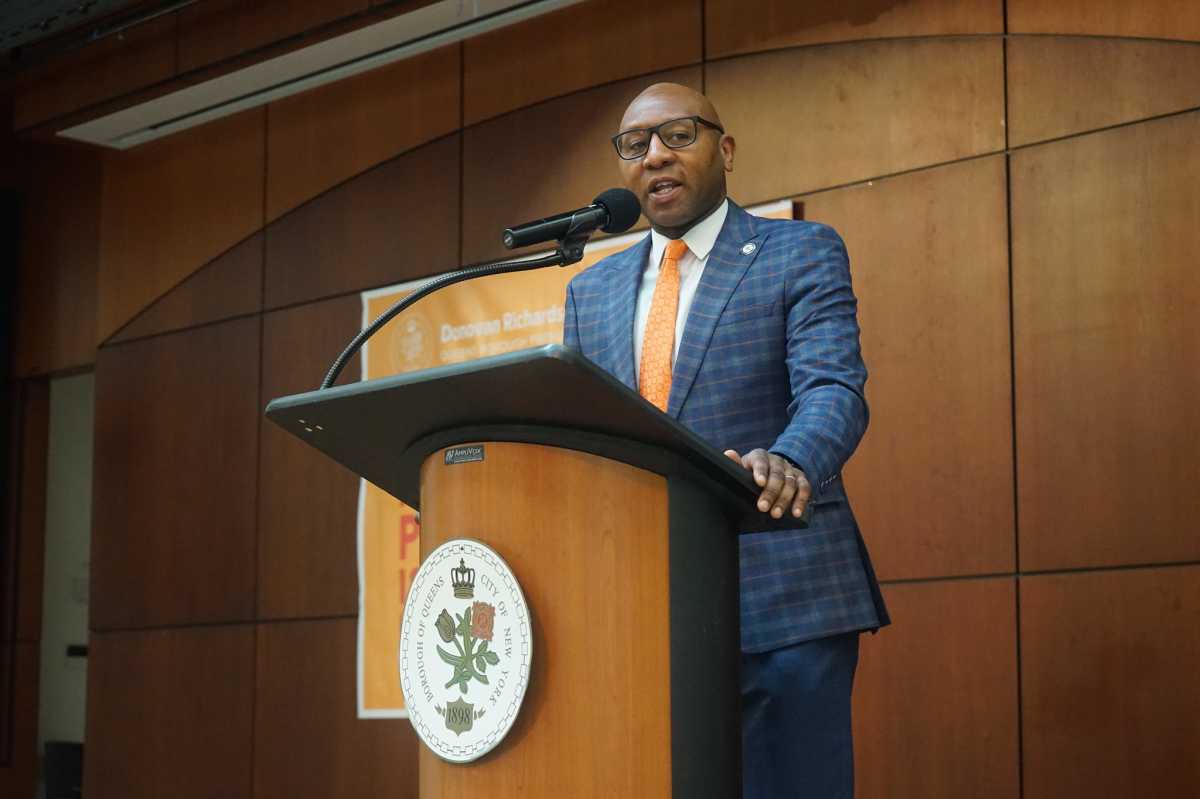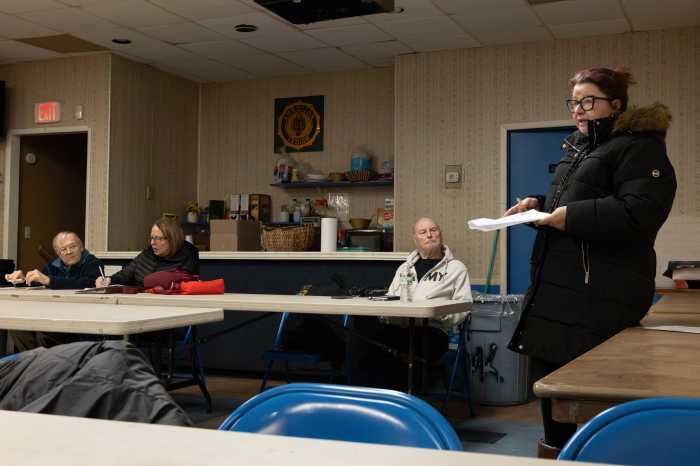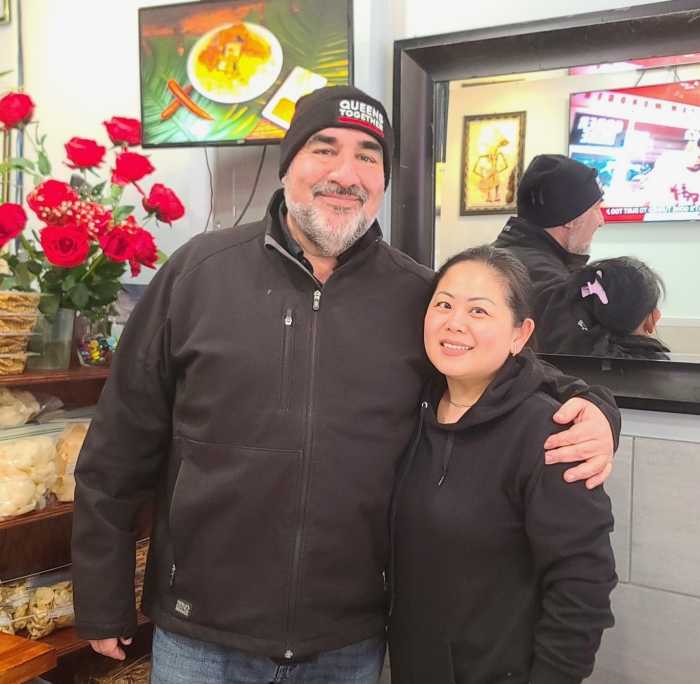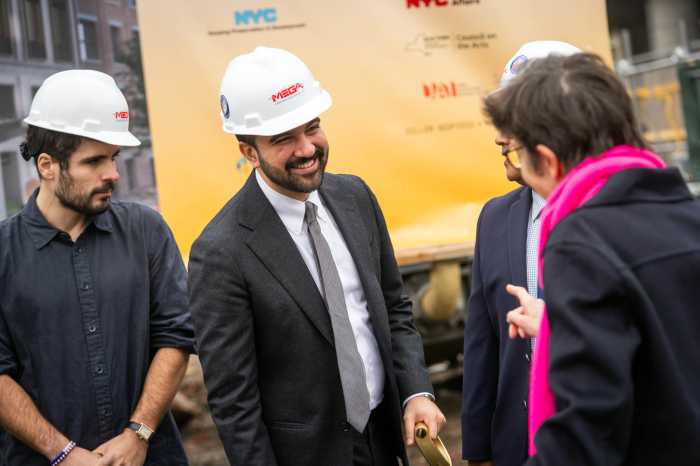New York City has long been and forever will be the globe’s greatest hub of culture, cuisine, art and entertainment.
That also means New York City’s hospitality industry will forever be arguably its most economically vital, as more than 62 million tourists visited the five boroughs — spending more than $48 billion on their trips and generating nearly $5 billion in tourism-related tax revenue — in 2023 alone.
With tourism to New York City having finally returned to pre-pandemic levels, our formerly empty hotels at the height of COVID-19 are now brimming with guests from all over the nation and the world. All while tens of thousands of hotel workers make a living ensuring that their stay is a memorable one.
But a thriving hospitality sector brings with it its own set of public safety struggles that sometimes slide under the radar. Turning a blind eye to these issues, however, has become untenable.
Over the past five years, the NYPD has logged more than 14,300 criminal complaints at New York City hotels and motels, including thousands of felonies. Even more troubling, there have been at least 39 murders over the past 15 years, including the killing of 20-year-old Rosedale resident Robert Williams at the Umbrella Hotel in Kew Gardens on New Year’s Day 2021.
A former Rosedale Jets youth football star, Williams was staying at the hotel to celebrate both the new year and his 21st birthday the next day when he was gunned down in front of the building.
Robert Williams should still be alive today.
He should still be alive because the Umbrella Hotel should not have even been open that night.
Prior to Williams’ death, the hotel had been the subject of dozens of complaints from neighbors, who noted the site had become a hub of drug dealing, prostitution and violence. Two shootings occurred there the previous summer, including one that wounded a teenager.
Unfortunately, this is far from the only hotel in our city that has become a hotbed of illegal activity — threatening both the safety of our communities and the resurgence of our tourism industry.
But for far too long, the city has had no power to shutter these hotels. If we are to continue to welcome record numbers of tourists to our city and ensure our reputation as the safest big city in America remains as such, that must change.
That is why as a member of the City Council I introduced legislation to set minimum standards around safety, health and worker protections in hotels. And that is why, as Queens Borough President, I wholeheartedly endorse legislation — the Safe Hotels Act — sponsored by Council Member Julie Menin, which expands on that foundation and creates a licensing system for hotels.
Giving the city the tools to better regulate hotels and set some basic health and safety standards that any reputable hotel should already be following is essential to protecting workers, guests and the local communities in which these hotels operate. One would think that something so common-sense would be a policy that we could all find common ground to support. When I first started this legislative movement back in 2019, the hotel industry didn’t raise serious objections. In fact, the only reason that bill didn’t move forward was the near complete shutdown of the hotel and tourism industry during the height of the COVID-19 pandemic.
Fast forward to the present day with tourism back to pre-pandemic levels, some hotel owners have begun to unreasonably claim that these new, modest regulations would send the industry into a tailspin. Some of the richest hotel owners in the world are even threatening to spend millions of dollars to block these licensing efforts.
However, many other major cities across the nation — including Chicago, Boston, Las Vegas, Denver and Washington DC — have already established licensing structures for hotels that are far stricter than what’s proposed in the Safe Hotels Act, and their hotel industries remain successful.
Holding hotels to some minimal safety and health standards isn’t a burden, but rather a basic business practice. In fact, hotels already need to apply for a multitude of licenses if they want to have a spa, pool or sell liquor on the property.
The fact is all this bill does is require hotels to be licensed through the Department of Consumer and Worker Protection (DCWP) by meeting very basic standards, such as having continuous front desk coverage with at least one security guard on site, offering human trafficking training for employees to be able to better identify sexual abuse and exploitation of women and children, providing panic buttons to safeguard room cleaners and setting cleanliness protocols to keep guests and workers safe.
The bill also would prohibit excessive subcontracting of core hotel functions to protect workers. We have seen subcontracting be used as a way for hotels to escape liability when something happens to a guest or worker. It can also be a breeding ground for wage theft and unsafe working conditions, such as forcing workers to clean unsanitary rooms without proper equipment like masks and gloves.
Complaints against hotels lodged with 311 have more than doubled from 149 in 2019 to more than 315 in 2023. Just last year, six men, including two staffers and a hotel manager, were indicted by the Bronx District Attorney’ Office for child sex trafficking.
This rising problem is why the five district attorneys of New York City and New York State Attorney General Letitia James have all come out in favor of this bill. Now, we need the City Council to pass the Safe Hotels Act and give the city an essential tool that will allow it to crack down on problematic hotels.
Licensing is one of the most effective, proven tools the city has to enforce critical safety and sanitary standards at public-facing businesses. That’s why it’s critical that the Council pass the Safe Hotels Act to protect consumers, communities and workers and ensure a seamless, safe and sanitary hotel experience for all.
































